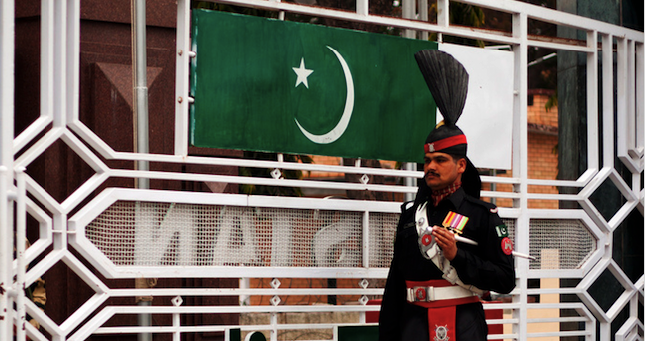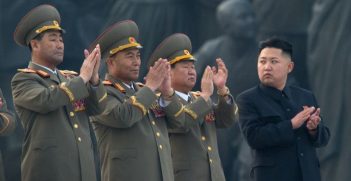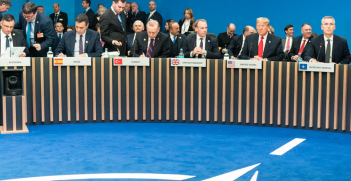Pakistan: On the Road to Democracy or the Persistence of Praetorianism?

23 March 2016 marks the 60th anniversary of the Islamic Republic of Pakistan. Now recognised as Pakistan Day, the date is celebrated as an annual holiday, giving a chance to pause to reflect on the state of the nation.
This year also marks the 76th anniversary of the passing of the “Pakistan Resolution” by the All India Muslim League on 23 March 1940, which demanded a separate homeland for the Muslim minority of the Indian sub-continent. It is also the 69th anniversary of the partition of India by the British, which resulted in the creation of Pakistan on 14 August 1947.
More than seven decades after the passing of the Pakistan Resolution, the country faces a daunting series of existential challenges ranging from ethnic strife to Islamism and terrorism. But to what extent does the present democratic order portend a new and more stable chapter in the country’s history?
Pakistan is the only state in the post-colonial Muslim world to have been established solely in the name of Islam. However, even at its foundations the Pakistani state exhibited profound contradictions. The leadership of the Pakistan movement had differing ideas of what sort of an “Islamic state” Pakistan would be. Pakistan’s founder, Mohammad Ali Jinnah, a lawyer educated at Lincoln’s Inn and a secular Shi’a Muslim, had rather naively anticipated a state based on a mix of liberal Islamic values and Western democratic norms.
The secession of the majority ethnic Bengali population of East Pakistan in 1971 to form Bangladesh eroded Pakistan’s “Islamic ideological” basis. Nonetheless, Jinnah’s successors, in particular Islamist General Zia-ul Haq, tried to infuse archaic Sunni fundamentalist Islamic laws into the Pakistani body politic in the late 1970s. This has caused considerable conflict within society that is still going on today, resulting in bigotry, sectarian violence and persecution of minorities, in particular the Shi’a, Christians and the Ahmediyyia.
Pakistan also failed to develop a stable democratic system and has largely been ruled by strong military-bureaucratic apparatus inherited from the British Raj. Pakistan’s civilian politicians, unlike their Indian counterparts, were unable to ensure civilian supremacy over the military establishment from the beginnings of statehood. In this regard, the military establishment has generally played the hegemonic role dominating the state apparatus either overtly in various periods from the 1960s to the 1980s (and again from 1999 to 2008) or indirectly via influencing the supposedly civilian “elected” governments.
The country was born out of a bloody partition of India which saw the senseless, mass murder of over a million Muslims, Hindus and Sikhs in inter-communal clashes. Thus, even after seven decades the relationship between India and Pakistan remains intransigent. Four wars have been fought since the gory partition and the two countries remain at loggerheads. The Pakistani civil and military elite still view India as the state’s existential nemesis. The elite’s paranoia about India’s real or imaginary threats to Pakistan’s existence has further solidified the military’s grip on the state. The military establishment remains India-centric to the hilt and even Pakistan’s nuclear program is largely India-specific. Ironically, this program was created by the civilian administration of Prime Minister Zulfiqar Ali Bhutto in the mid-1970s to neutralise India’s conventional and nuclear dominance in any future war.
Pakistan faces daunting economic challenges with rapid population growth. Its society faces ever-widening social and economic disparity. Its ranking in the UNDP’s Human Development Index slipped from 120 in 1991 to 147 in 2015: worse than the Congo (136) and Nepal (145) and only just above Myanmar (148) and Angola (149), all countries with far weaker economies. According to Pakistan’s Minister of Finance, over 50 per cent of Pakistan’s 200 million population lives below the poverty line, defined as a daily income of just US$2. Pakistan also has one of the lowest literacy rates in the world. Moreover, there is a proliferation of Islamic schools or madrassas often teaching intolerant forms of Islam leading to extremism and terrorism.
Despite the introduction of formal civilian rule in Pakistan in 2008, there has not been any lessening of the military’s role in domestic security. The military remains unaccountable to the civil authorities for actions pertaining to counter-terrorism operations in Khyber Pakhtunkhwa province or in the Balochistan province, where it is fighting a low-level insurgency against ethnic Baloch separatists. Civilian state capacity remains weak and has to rely on the military to exert state authority in many areas. Politicians are apprehensive of the military establishment and generally acquiesce to its hegemony.
The army has always dominated national security and foreign policy, even when civilians were in power, and it is no different in 2016. The military has its own courts which hold trials in secret, it oversees the media, it assists in making bureaucratic appointments and it monitors political parties, with informants in all major parties including the ruling Pakistan Muslim League which gained a majority in the National Assembly after the 2013 elections. In fact, the current Prime Minister Nawaz Sharif rose to prominence as a trusted political confidant of the former military dictator, General Mohammad Zia-ul-Haq. Many of Nawaz’s cabinet ministers have links with the military as well.
Nevertheless, the military’s influence on the state has had some positives. It remains the only organised and disciplined institution in a country riven with religious, ethnic, tribal and sectarian fissures. Hence, with the backdrop of the various centrifugal forces pulling the country apart, the fact that the ethnically Punjabi-dominated military has kept post-1971 Pakistan together is certainly no mean achievement. Moreover, it has enabled Pakistan to persist in pursuing a pro-Western foreign policy. Despite fears in the West of Islamic radicalisation at higher levels, the military leadership has largely remained secular albeit conservative in its outlook. Even the growing US engagement with India has not substantially affected Pakistan’s historically multifaceted relationship with the United States. The US government’s classification of Pakistan as a “major non-NATO ally” in 2004 was an acknowledgement of the country’s pivotal role in the US- led “War on Terror”. Since 2001, Pakistan has received around US$28 billion in US military and economic assistance.
The military remains an unelected centre of power in Pakistan, with its own ties to the formal structures of domestic governance and foreign governments, in particular the US, Saudi Arabia and China. The most likely future for Pakistan over the next five to ten years is it muddling along with the quasi-democratic rule that it is experiencing at present, with the military influencing national security decisions. However, if political conditions deteriorate owing to domestic instability, terrorism or external threats, resulting direct military rule is a strong possibility.
Dr Rizwan Hussain is a former research scholar of the Centre for Arab and Islamic Studies (CAIS) at the Australian National University. This article is published under a Creative Commons Licence. It may be republished with permission.





